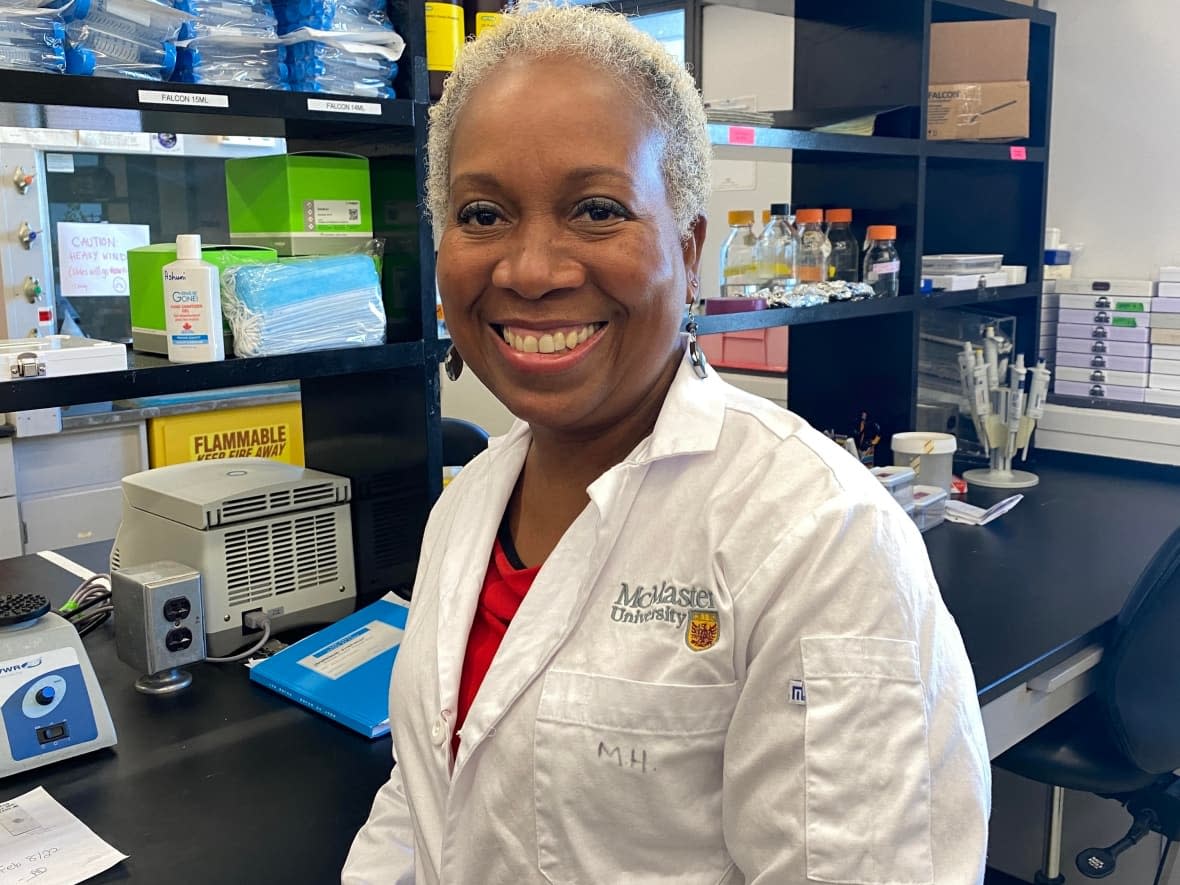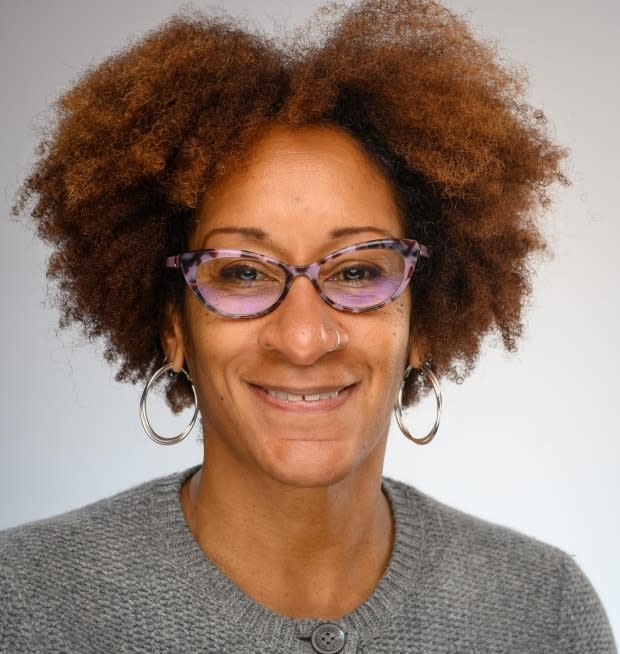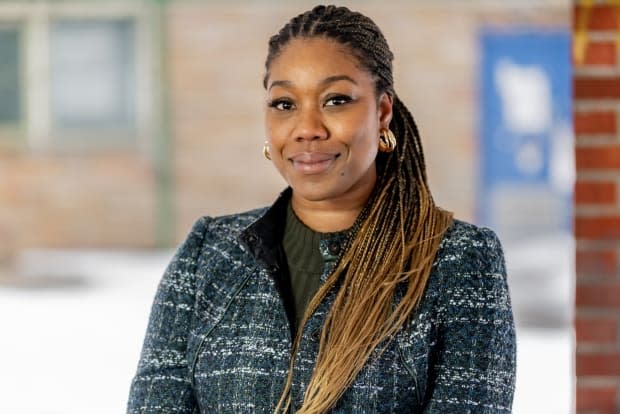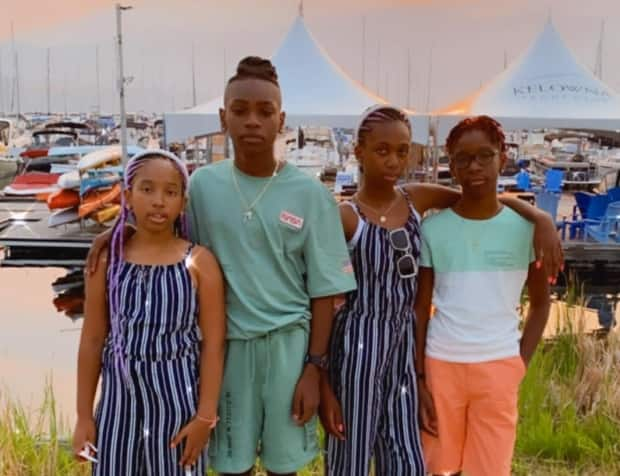Black scientists, community leaders want Black youth 'to see possibility' in STEM

After Juliet Daniel delivered her first lecture as a professor at McMaster University back in 1999, a few Black students enthusiastically dashed up to speak with her. However, what they said surprised the biologist and cancer researcher.
"They were excited because they had never in their entire life had a single Black teacher," Daniel, who is based in Hamilton, Ont., recalled. "[They] had grown up in the GTA and they were in second-year university and I was the first Black teacher they had ever had."
That experience helped drive the research scientist's decision to mentor and support young Black students, especially those studying in STEM fields (science, technology, engineering and mathematics) like hers.
Black students and faculty have long seen fewer Black youth pursue and continue in STEM than other racial groups. Only in recent years has there been more support for a concerted, national effort to figuring out why. In the meantime, Black researchers, students and community groups are tackling the disparity on multiple fronts.
Daniel has seen the effect negative narratives and portrayals of Black Canadians have on the confidence, self-esteem and academic potential of Black students.
She was born and raised in Barbados before moving to Canada for her undergraduate and graduate studies. "I never doubted that I could be anything I wanted to be because Barbados is predominantly Black. We have Black lawyers, Black doctors, Black politicians, Black prime ministers," she said.
But in Canada, she said, many Black youth are turned off of STEM disciplines in high school or even elementary school.
"There's just this weight that is on their shoulders from how they're portrayed in the media or how their teachers talk to them, that they don't think they can do science. Even if they're interested, they have no one to help guide them and steer them as to how they should pursue that passion."
Gathering and analyzing data key to identifying gaps
A 2020 Statistics Canada report examining a cohort of Black Canadian youth, based on the 2006 and 2016 censuses, found that Black students graduate high school at a similar rate to other racial groups. However, the cohort of Black teens from 2006 were less likely than their counterparts to have a post-secondary certificate, diploma or degree 10 years later.
Individual researchers have looked at racial disparities in education regionally, but Canada hasn't made it a national practice to collect and analyze education data through the lens of race.
WATCH | Why we need more data about Black students and STEM:
That information is key to identifying disparities, gaps, systemic barriers and other issues blocking fuller participation of Black and other racialized people in STEM disciplines, says Jennifer D. Adams, an associate professor in the faculties of science and education at the University of Calgary.
In the United States, there's more data exploring educational patterns and trends among Black students, a response to the country's "long history of in-your-face racism, for lack of a better term," noted the researcher, who was born and raised in New York.
Canada puts forth "a strong rhetoric" of the country being a cultural mosaic and upholding "an ideology of not seeing colour," she said, but that typically means students from different races and ethnicities see their experiences boiled down into one "visible minorities" bucket.

A willingness to acknowledge and address racial discrimination within education has increased in recent years, following the murder of George Floyd, the resurgence of Black Lives Matters protests and the establishment of groups like the Canadian Black Scientists Network, in which both Daniel and Adams are involved.
Scientists with the network are working with Statistics Canada, for instance, to compile and analyze data on the proportion of Black students in STEM from high school onwards.
Adams, who holds a Canada Research Chair in Creativity and STEM, is currently studying the experiences of BIPOC post-secondary STEM students in Western Canada. Black students have shared heartbreaking stories, she said, about their contributions being dismissed and feeling alienated at school.
"There are Black students that noted that they didn't feel comfortable wearing their hair in an afro or wearing ... regular clothes that they would wear on the street, [to avoid] being 'perceived as being ghetto' and not belonging to these science spaces," she said.
"They have to feel and be and talk and act and do things in a certain way in order to fit in or ... have to overcompensate to prove that they belong."
Early support needed
Looking around her classrooms in Vancouver, biology graduate student Kywana Bonaparte sees some diversity, but says "someone who looks exactly like me or something more similar to me, I would say that still needs to be improved."
The University of British Columbia student grew up with supportive parents who encouraged her interests early on by enrolling her into science camps and fairs, as well as teachers who recommended paths to continue learning STEM subjects. Watching a family friend study medicine and become a doctor also modelled academic success.

She's now working to improve the situation for younger students in her hometown of Calgary, in her role as youth advisory lead for Realize Your Potential (RYP), an education and mentorship program supporting Black youth. The organization is adding more STEM learning and introducing students to careers in those fields.
That might look like hands-on experiences for younger kids, showing them science in their everyday lives, Bonaparte says, along with mentorships for and giving advice to high schoolers about opportunities in STEM and the pathway to those careers.
Lack of information and opportunities
"I don't think there's a lack of interest," said Desiree Henry, a co-founder of the Realize Your Potential program, who is now based in Toronto. "It's mostly a lack of information being provided to Black youth, as well as opportunities."
Henry, who recalled being the only Black student at her elementary school until she reached Grade 7, said support from clubs and her community helped her push through racial bullying and mistreatment she faced at school. With the RYP program, she wants to help a new generation prevail against education system barriers.

Javonte Blake and Jahzara Atkins, siblings currently enrolled in the RYP program, say the learning environment is different than in their regular schools, where discussions about race or Black history aren't present or make others uncomfortable.
Sitting amongst Black students and teachers at RYP, as well as being encouraged to ask questions and share her thoughts make the program "fun," said Atkins, 11. "We get to speak our opinions about the subject ... I like that part because I get to speak my mind."
Blake, 15, said he appreciates the different approach used, from engaging resources such as TED talks to slowing down to explore subjects more completely. The teen admits that some of his friends "think it's just extra work for no reason" to spend Saturdays in an additional class, "but I know why I'm doing it. I'm doing it so that I can get a better education and better myself."

Bonaparte wants young Black students to see a world of opportunity. "I want them to see possibility ... I want them to see that people that look like them are succeeding in the fields of STEM and that's also attainable for them to do so as well," she said.
"I also want to provide them opportunities to explore the possibilities that exist in STEM earlier on in life ... so that they can really understand what it means to be a part of this."
It's a sentiment shared by Daniel, who along with running a lab and conducting cancer research, is busy with multiple initiatives — working with Black academics across the country to study the issue and pushing forward the Canadian Black Scientists Network — in hopes of moving the dial.
"If we're saying ... 'Nothing for us without us,' then as a Black community we need to realize that we have to be flooding every single profession with as many Black youth as possible so that they can achieve their potential in all these professions."
For more stories about the experiences of Black Canadians — from anti-Black racism to success stories within the Black community — check out Being Black in Canada, a CBC project Black Canadians can be proud of. You can read more stories here.



